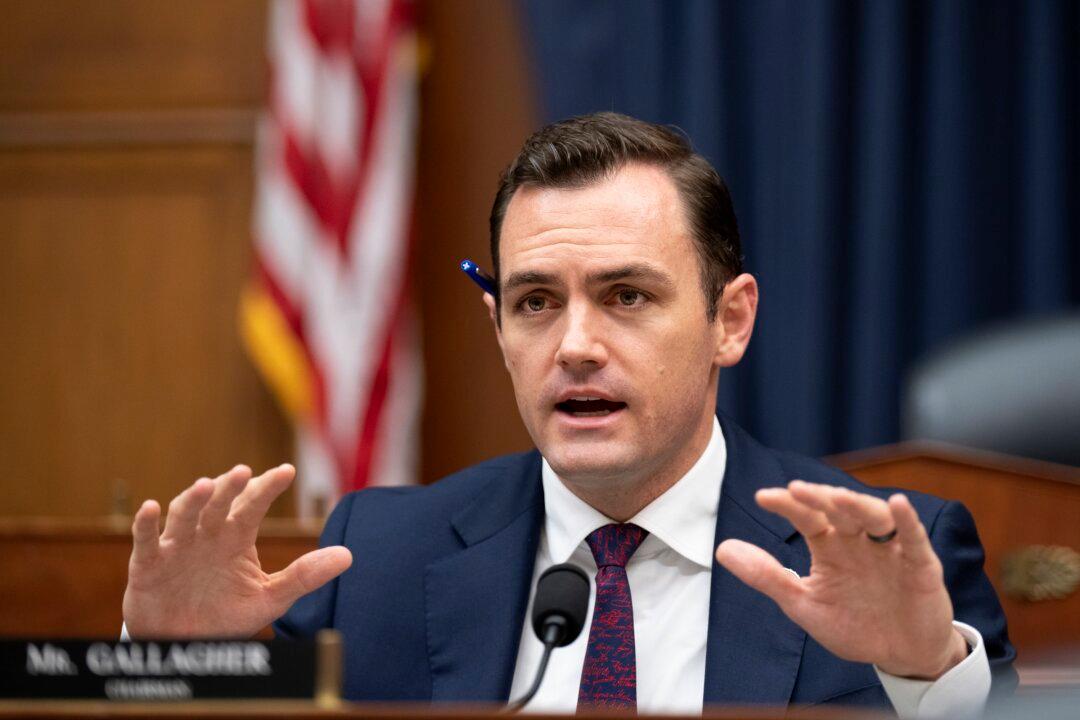The impending economic storm in China could accelerate the Beijing regime’s timeline for mounting an invasion of Taiwan, House China Committee Chairman Rep. Mike Gallagher (R-Wis.) is warning.
The property sector driving the world’s second-largest economy is in an accelerating crisis as some of its biggest players miss payments to lenders amid mountains of debt. On top of that is what the lawmaker called communist China’s “demographic buzzsaw unlike any society in human history,” worsened now with millions of Chinese youth out of work and seeing their lives on hold.






